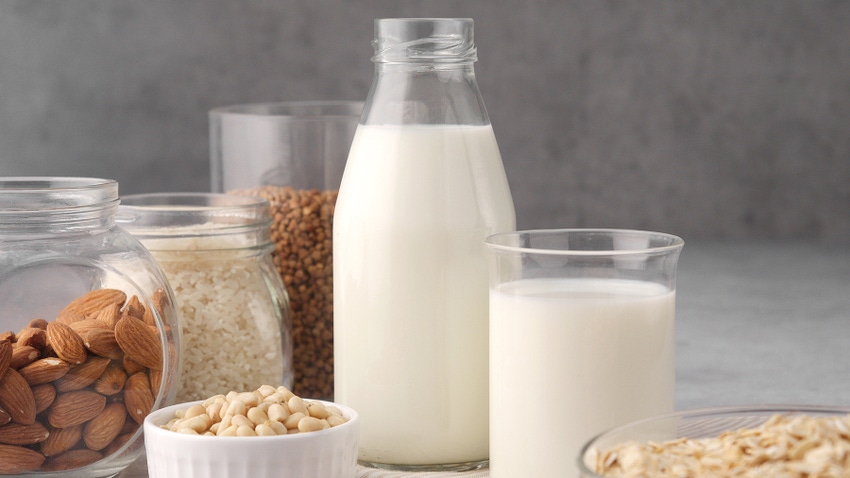
The FDA is calling on producers of plant-based beverages being sold as milk alternatives to add a voluntary nutrient statement spelling out how their products compare to traditional dairy milk. In a draft guidance titled “Labeling of Plant-based Milk Alternatives and Voluntary Nutrient Statements: Guidance for Industry,” the agency suggests products like soy milk or almond milk could include a label stating “contains lower amounts of Vitamin D and calcium than milk.”
The move comes in response to an FDA request for additional information on the labeling of plant-based milk alternatives. According to an agency release, more than 13,000 comments were submitted on the issue. The FDA ultimately concluded that most consumers understand plant-based milk alternatives do not contain milk. However, they may not understand how the nutritional composition these products vary and may not contain the same levels of key nutrients as milk.
“Today’s draft guidance was developed to help address the significant increase in plant-based milk alternative products that we have seen become available in the marketplace over the past decade,” FDA Commissioner Robert M. Califf said. “The draft recommendations issued today should lead to providing consumers with clear labeling to give them the information they need to make informed nutrition and purchasing decisions on the products they buy for themselves and their families.”
Guidelines raise concerns
Both dairy producers and advocates for plant-based alternatives expressed concerns with these new guidelines. Dairy producers have long contended the work “milk” should only be allowed on dairy-based products. National Milk Producers Federation President and CEO Jim Mulhern says that while the new guidance will provide greater transparency for consumers, it still fails to address what the NMPF considers to be the unlawful use of dairy terms.
“The decision to permit such beverages to continue inappropriately using dairy terminology violates FDA’s own standards of identity, which clearly define dairy terms as animal-based products,” Mulhern said. “We reject the agency’s circular logic that FDA’s past labeling enforcement inaction now justifies labeling such beverages ‘milk’ by designating a common and usual name. Past inaction is poor precedent to justify present and future inaction.”
The Plant Based Foods Association issued a statement voicing concern that the draft guidance implies the nutritional content of plant-based products is inferior to dairy milk. The organization said that this suggestion is discriminatory toward the plant-based sector and threatens to jeopardize growth within the industry.
“We commend the FDA’s acknowledgement that consumers are affirmatively choosing plant-based milks because of their many benefits for human and planetary health,” PBFA CEO Rachel Dreskin said. “However, we see many suggestions in this proposal that are unfairly burdensome to companies, and frankly, treat plant-based products differently than any other foods in the market. We look forward to sharing our feedback with FDA in the coming weeks to ensure the best outcome for our members, for our industry, and for consumers looking for options that align with their needs and values.”
The new FDA guidance does not address other dairy alternatives like plant-based cheese and yogurt. The agency is currently working on a separate draft guidance for those products.
About the Author(s)
You May Also Like






